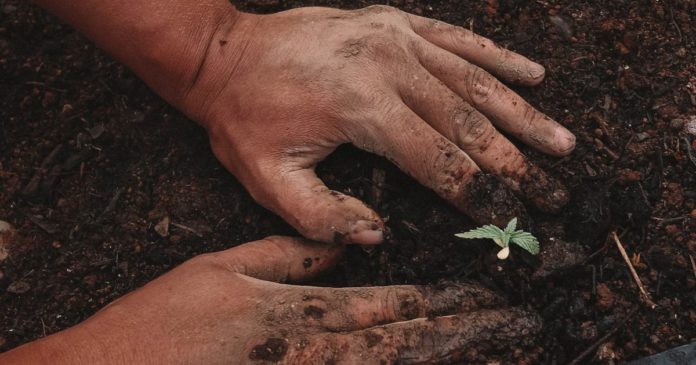A genetically engineered (GE) hemp variety modified to produce no tetrahydrocannabinol (THC) and cannabidiol (CBD) has cleared a regulatory hurdle in the USA.
In the USA, hemp is defined as the plant Cannabis sativa L. and any part of it with a delta-9 tetrahydrocannabinol THC concentration of not more than 0.3 percent on a dry weight basis. Above that threshold and the cannabis plant is considered marijuana, with all the regulatory complications that entails.
While there are a number low-THC hemp varieties available, those plants can go “hot” (above the threshold) due to various factors, including environmental. This places farmers at risk of having to destroy the crop and even face criminal charges depending on the state and circumstances.
“Hot” crops have been an ongoing problem and a significant proportion of the hemp crop in the US is discarded due to THC levels beyond the 0.3% threshold set forth in the 2018 Farm Bill.
But genetic engineering is providing some solutions. For example, researchers at the University of WI-Madison have developed a cannabis plant they’ve named Badger G that has no CBD/CBDA and THC/THCA. This was achieved through a gene
editing knockout of the endogenous CBDAS gene using CRISPR/Cas9 methodology.
“This will provide U.S. growers with agronomic and compliance benefits, including higher levels of the cannabinoid CBG/CBGA … Our new line will allow farmers to be in full compliance with these regulations.”
But there are various regulatory hurdles that need to be cleared. Among them, the Animal and Plant Health Inspection Service (APHIS) is the regulator of genetically engineered crops in the USA and APHIS regulations at 7 CFR part 340:
“… govern the movement (importation, interstate movement, and confined environmental release) of certain organisms that are developed (modified or produced) through genetic engineering.”
A plant developed using genetic engineering can be granted an exemption after a Regulatory Status Review (RSR), which will determine whether it is subject to the regulations. But until APHIS completes an RSR, any GE plant not otherwise eligible for exemption pursuant to 7 CFR 340.1 is subject to the regulations.
Senior Scientist Michael Petersen from the Wisconsin Crop Innovation Center at the University of WI-Madison submitted an RSR request back in November 2023, seeking an exemption for Badger G. Last week brought good news: APHIS determined Badger G is not subject to the regulations.
“APHIS’ determination that this modified plant is not subject to the regulations extends to any progeny of the modified plant that is derived from crosses with other nonmodified plants or other modified plants that are also not subject to the regulations in 7 CFR part 340.”
It’s not clear when Badger G will be commercially available, but no doubt there will be plenty of interest in it.


